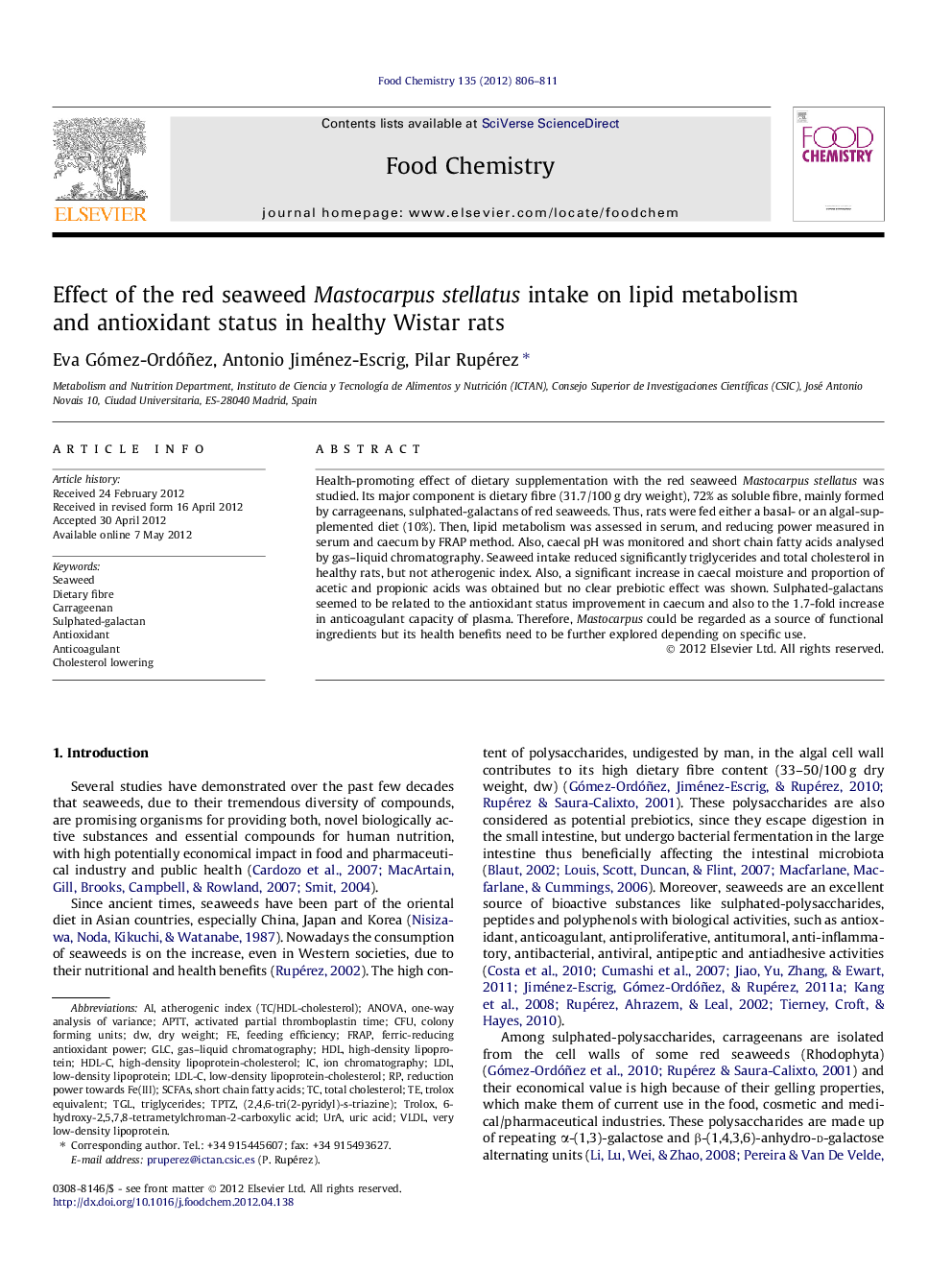| Article ID | Journal | Published Year | Pages | File Type |
|---|---|---|---|---|
| 1185790 | Food Chemistry | 2012 | 6 Pages |
Health-promoting effect of dietary supplementation with the red seaweed Mastocarpus stellatus was studied. Its major component is dietary fibre (31.7/100 g dry weight), 72% as soluble fibre, mainly formed by carrageenans, sulphated-galactans of red seaweeds. Thus, rats were fed either a basal- or an algal-supplemented diet (10%). Then, lipid metabolism was assessed in serum, and reducing power measured in serum and caecum by FRAP method. Also, caecal pH was monitored and short chain fatty acids analysed by gas–liquid chromatography. Seaweed intake reduced significantly triglycerides and total cholesterol in healthy rats, but not atherogenic index. Also, a significant increase in caecal moisture and proportion of acetic and propionic acids was obtained but no clear prebiotic effect was shown. Sulphated-galactans seemed to be related to the antioxidant status improvement in caecum and also to the 1.7-fold increase in anticoagulant capacity of plasma. Therefore, Mastocarpus could be regarded as a source of functional ingredients but its health benefits need to be further explored depending on specific use.
► Beneficial effect of Mastocarpus stellatus on lipid metabolism and antioxidant status. ► Significant reduction of triglycerides and total cholesterol in serum. ► Significant increase of reducing power in caecum. ► Carrageenans role on lipid lowering, antioxidant and anticoagulant capacity increase. ► Potentially useful for the prevention of hyperlipidemia and thrombosis.
